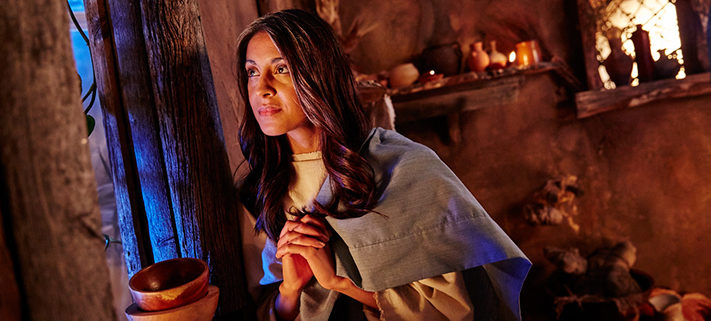God with us
“Therefore the Lord himself will give you a sign: The virgin will conceive and give birth to a son, and will call him Immanuel.” Isaiah 7:14
Daniel J. Habben
Not so long ago, my wife found a list of names that we had compiled 16 years ago in anticipation of each of our children’s births. We wanted their names to mean something, to be just right, since our kids would carry those names for life.
In a few weeks, churches all over the world will remember a far more significant name-choosing: “The virgin will conceive and give birth to a son, and will call him Immanuel.” Talk about a name packed with meaning. Immanuel comes from the Hebrew and means “God with us.” The child Mary would bear was God himself. Isn’t that what we celebrate every Christmas—the fact that God chose to pitch his holy tent among sinful humanity?
Help is at hand
But perhaps God’s arrival should be cause for concern. If you came home to find an ambulance parked in your driveway with lights flashing and engine running, you wouldn’t think: “Cool! I’ve always wanted to see an ambulance up close!” Instead you would race into the house and shout: “What’s wrong?! Who’s hurt?!” The presence of an ambulance means trouble.
Likewise, when God parked his Son in that Bethlehem crib it signaled trouble—or at least it should have. Do we really want a holy God to be with us? In the bedroom? In the boardroom? In the bar? Do we want him observing our every action and reading our every thought? Such a prospect should dismay us more than someone livestreaming every hidden moment of our life!
But while the presence of an ambulance signals a problem, it also means that help is at hand. So it is with Immanuel. God is with us—not to punish, but to save. The Son of God accomplished our salvation by actually becoming one of us. In the person of Jesus, God has hair and an eye color. He became thirsty and tired. He even died.
One eye on the cross
But why bring up Jesus’ death before the ink on his birth announcement has even dried? Why conjure up images of a brutal crucifixion even as we prepare for the joy of Christmas? Because Christians understand that lasting joy and happiness can only come from knowing and believing that all of our sins are forgiven. And that means celebrating Christmas with one eye on the crib and one eye on the cross where Jesus paid the penalty for our sin.
At this time of year, credit card companies often offer the chance to win all the purchases you will make in December. Wow—wouldn’t it be something to win that contest so that you wouldn’t have to start the New Year with a huge credit card bill? But here’s something better. When Roman soldiers fastened Jesus to the cross, God the Father charged him with all the sins that we have done and will ever commit. With sin paid for, the debt we owe God has been erased. The door to everlasting happiness is wide open.
It’s no wonder churches all over the world proclaim this well-known prophecy from Isaiah at this time of year. It’s a joy to be reminded that in Jesus we have Immanuel: God with us. In the person of Jesus, God joined Team Humanity so that we undeserving sinners may live forever with Team Divinity.
Whom will you invite to church this Christmas to learn the meaning of Immanuel, God with us?
Contributing editor Daniel Habben is pastor at St. John’s, St. John’s, Antigua, West Indies.
SUBMIT YOUR STORY
Do you have a manuscript, idea, or story from your own life you’d like to share for use in Forward in Christ or on wels.net? Use our online form to share it to our editorial office for consideration.
SUBSCRIBE TO FORWARD IN CHRIST
Get inspirational stories, spiritual help, and synod news from Forward in Christ every month. Print and digital subscriptions are available from Northwestern Publishing House.
Author: Daniel J. Habben
Volume 104, Number 12
Issue: December 2017
Copyrighted by WELS Forward in Christ © 2021
Forward in Christ grants permission for any original article (not a reprint) to be printed for use in a WELS church, school, or organization, provided that it is distributed free and indicate Forward in Christ as the source. Images may not be reproduced except in the context of its article. Contact us











